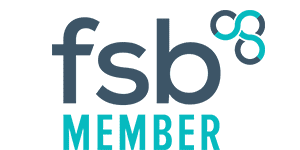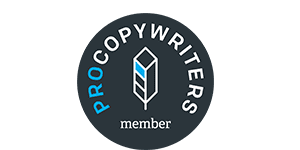Having a clear brand voice is part and parcel of creating the copywriting, blogs, web content (and since our video editor just read this and gave me a look that could freeze a volcano) and other marketing assets such as video, that inform and enthuse your client.
Your voice is a building block for what we call your E.N.D. game and it makes you stand out. So, if you found this blog by asking Google or Bing a question along the lines of ‘what is a brand voice’ or ‘is a brand voice important’, then read on.
What is your voice?
When we talk about your voice in reference to your content we are talking about:
- The personality of your brand or business
- The consistent way it talks to the world
- The language and manner of address it uses.
Your voice is created from a mixture of who you are as a business and how your audience (your avatar ideal customer) would want you to speak.
To give an extreme example of voice in action:
A business selling a smash detector product to a technically aware target readership of installers and technicians could perhaps say…
- ‘The use of precision audio technology creates a zone of interaction within which the sensor will wait in a passive state until triggered by the distinctive sound of glass breaking. This prevents accidental triggering and reduces costly false alarm incidents’
The same device but now being described by the business that purchased the sensor as a sale item to end-users…
- ‘Having a good security system is all about peace of mind, isn’t it? It’s about knowing your house is secured and monitored. The last thing you want is a lot of false alarms though, so this clever little sensor has been developed to run on low power until it recognises the sound of glass breaking. When it does, it wakes up and lets you, and our security people, know something could be wrong.’
A different voice and different use of language. Both examples say more or less the same thing, ‘the sensors will only hear breaking glass then all hell breaks loose’, but they say it in different, highly focused, ways.
What should you sound like?
OK, so here is where the opinions differ a little. What your voice should sound like tends to fall into three general areas of thought.
- Your voice should be the voice of your avatar and only say what they want to hear
- Your voice should only be your voice and ‘authentic’
- Your voice should be yours but speaking as your avatar needs to hear your information
There are pros and cons for all these, for example:
- Pro – you are appealing directly to your buying community in only their language. Con – you can come across as fake and sycophantic and rather neutral in tone, as well as lacking any distinctive personality
- Pro – your brand will probably have a very loud, strong, voice. Con – you are risking alienating potential buyers
- Pro – you will have a clear, refined, voice that will appeal to a broad audience. Con – this can be tricky to achieve, and you need to choose the placement of your content very carefully
Which of these is best is often a matter of circumstances and occasionally in house style from the writer. A lot of very focused SEO targeted, keyword stuffed, writing may well go for the first option. The second tends to be useful for very distinct marketplaces that have a community language or ‘rebel’ appeal brands. The third is more universal in application and can be adapted more to specific circumstances.

How do you find your voice?
Start with your perfect customer because, in the end, the purpose is to provide them with your product or service. If you are an online optician selling a range of off the shelf glasses, based on a low price point as your USP, and want to appeal to the widest possible audience, then the first option is likely to be the best. If you are selling surfing culture based products, then number 2 will probably work because anyone outside your cultural perspective is not buying anyway. If you are a business coach then 3 is clearly going to be the best option because personal relationships are important, but you want a wide customer base.
How do we do it?
One of the regular testimonials that we receive is that we get the voice right. The best compliment we can get is when someone says, ‘my customers thought it was me writing’. So how do we do it? Ahhh, sorry, we can’t tell you that or we would need to put you in an iron mask and lock you in a prison on a remote island somewhere in case you revealed our secret.
But OK, since it’s you.
We are storyteller based writers here are Your-Copywriter.com, so we tend to translate your brand or business into a character. We draw from our experience of personas to create the personal voice of your brand or business. People, as we all know, buy from people. One question I always ask my clients towards the end of a fact find is ‘if your business was a person, who would it be? if they respond with someone who is close to the person I am thinking of, I know I am on the right lines.
Which of the three do we prefer? If pressed for an answer, then number three usually works best for content that can be subtly changed to meet your END game. About 90% of our customer voices are developed this way.
As a last thought, we describe your voice as a song in the title for a reason. Run back over some of the most distinctive singers you can think of and some of their hits. The music always fits the voice. Freddie Mercury, Karen Carpenter, Nat King-Cole, Meatloaf, Elvis (Presley or Costello) and thousands of other successful singers all had one thing in common. They all stayed ‘in lane’ and had the voice that worked for the song and vice-versa.
Do the same with your brand voice and you should soon develop a distinctive song of your own.



